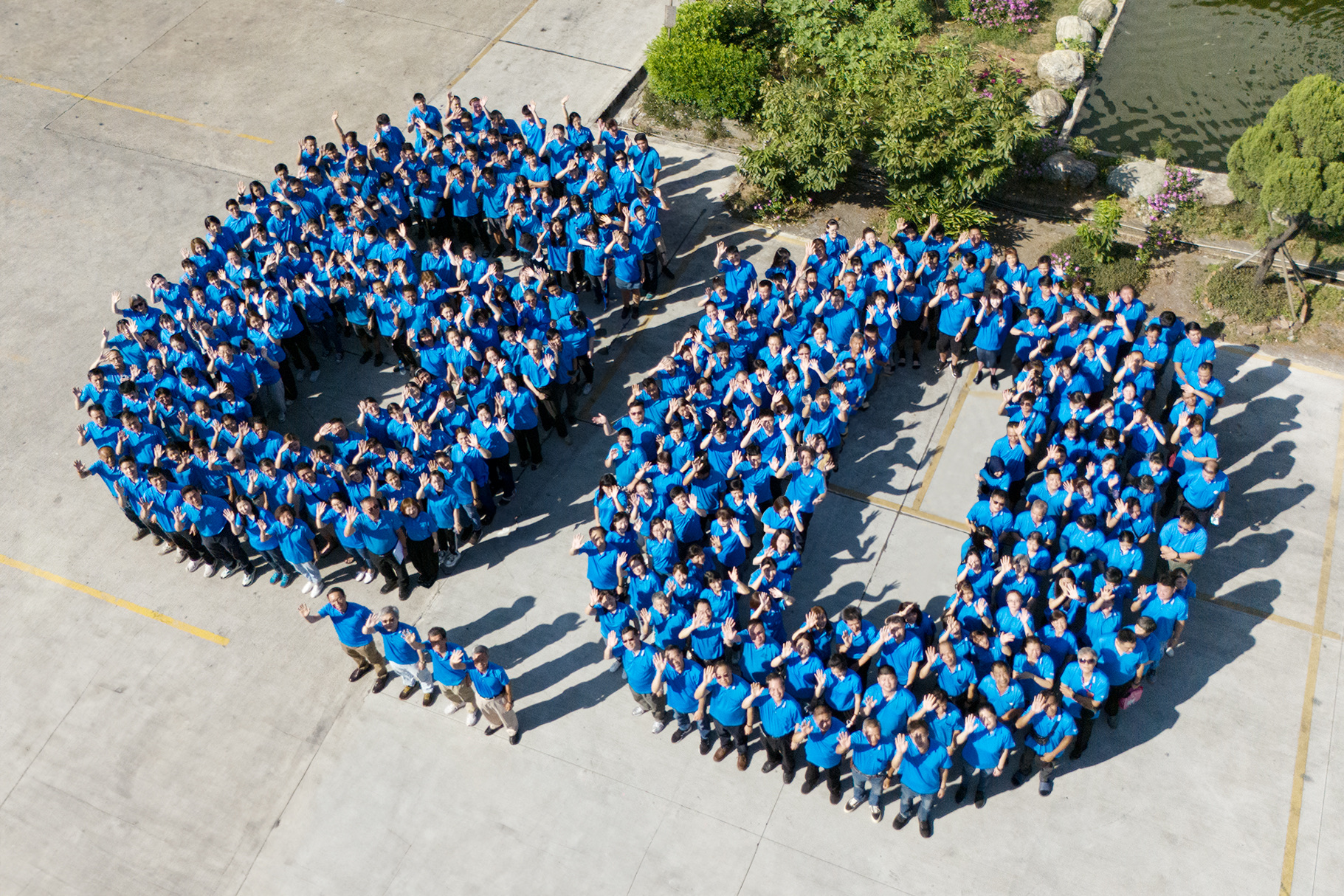
Since its founding in 1964, HOYU Textile has spent six decades rooted in Taiwan, continuously driving innovation and technological advancement in the field of industrial textiles. With its specialized weaving and processing capabilities, HOYU has pioneered numerous fabric technologies. This spirit of being a “trailblazer”—creating fabrics no one else dares to make—has shaped HOYU’s DNA and cultivated its strong R&D and innovation capabilities.
In 1964, former Chairman Mr. Cho and two partners pooled resources to establish a factory in Taipei, beginning with weaving engineering. Through deep understanding of fiber characteristics, they gradually expanded into a diverse range of fabric types and post-processing capabilities. In the late 1980s, as many peers relocated production overseas, HOYU chose to remain in Taiwan and focus on developing high-value functional fabrics. Since 2005, HOYU has been dedicated to researching and producing CYCLEPET recycled yarns, marking its formal entry into the path of environmental sustainability. From selecting eco-friendly materials such as recycled PET and ocean-recovered yarns, to optimizing processes through dope dyeing and solvent-free water-based adhesives, and even recycling production waste, HOYU is committed to a comprehensive green transformation.
In 2015, with support from the Ministry of Economic Affairs' A+ Industrial Innovation Program, HOYU established the "HOYU Innovation R&D Center," focusing on strengthening its core capabilities in chemical post-processing technologies. That same year, HOYU developed TPU composite materials and set up a T-die lamination production line. These technologies have since been widely applied in high-end textiles for outdoor, medical, and marine use. In 2018, HOYU launched XQUA®, a solvent-free PU adhesive, which has received patent certifications in the U.S., Europe, China, and Taiwan—injecting new momentum into the high-end sustainable textile market.
In 2020, HOYU independently developed the world's first "carbon-based high-tech multispectral camouflage net," featuring unique optical, radar, and near-infrared concealment capabilities that meet the requirements of Ultra-Lightweight Camouflage Net Systems (ULCANS). In response to Taiwan’s national defense localization policy, HOYU plans to establish the country’s first military-grade UD ballistic fiber fabric production line by 2025. This facility will serve military and police-grade bulletproof vest applications, addressing the current lack of domestic supply for ballistic fiber fabrics. HOYU firmly believes that its ability to remain competitive in the fiercely contested global market is inseparable from the support and collaboration of all its partners—including industry associations, government agencies, supply chain partners, employees, and brand clients.
Looking ahead, HOYU will continue to uphold the values of innovation and sustainability. In an increasingly uncertain business environment, the company will remain committed to transformation and bold innovation—driven by continuous learning, iteration, and progress.